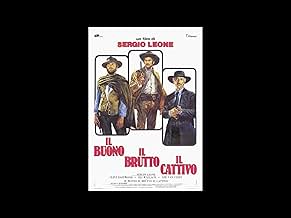A documentary concerning the violent Italian 'poliziotteschi' cinematic movement of the 1970s which, at first glance, seem to be rip-offs of American crime films like DIRTY HARRY or THE GODF... Read allA documentary concerning the violent Italian 'poliziotteschi' cinematic movement of the 1970s which, at first glance, seem to be rip-offs of American crime films like DIRTY HARRY or THE GODFATHER, but which really address Italian issues like the Sicilian Mafia and red terrorism. ... Read allA documentary concerning the violent Italian 'poliziotteschi' cinematic movement of the 1970s which, at first glance, seem to be rip-offs of American crime films like DIRTY HARRY or THE GODFATHER, but which really address Italian issues like the Sicilian Mafia and red terrorism. Perhaps even more interesting than the films themselves were the rushed methods of product... Read all
- Self
- (as Chris Mitchum)
- Director
- Writer
- All cast & crew
- Production, box office & more at IMDbPro
Featured reviews
Highly entertaining and informative
There is a general sense of good fun that runs throughout, even during the chapters that address misogyny and organised crime. Worth watching just for the car chases and scenes of actors genuinely doing their own stunts (the episode with John Saxon and live machine gun rounds is particularly memorable).
You don't need to be a particular fan of exploitation to enjoy this film; in fact its triumph lies in the way in which it weaves its own stories from the recollections of the chief protagonists. Highly recommended.
Catches the essence of a somewhat unknown genre.
The documentary catches the essence of what Eurocrime was all about, Tough Cops, Horrible Villains and everything in between, Car Chases, Cammora involvement it is all here.
All the great actors/directors who were present in the genre in it's heyday who are still alive give their input into why the movies were so special, what they were like to make, the death defining stunts, everything a fan of Eurocrime would want and more.
The greatest thing about this documentary though is that it does what all good documentaries do- it keeps you interested even if you have no interest in the subject matter- and it makes you laugh, it takes serious subject matter surrounding the genre and at points makes you cry with laughter due to the tales being told.
It is brilliantly paced and does not outstay it's welcome. I could have watched another hour or two of this.
For a first time director Mike Malloy really shows he has a talent for pacing, for asking the right questions, for garnering the best reactions from those interviewed who were involved in the whole Eurocrime scene.
I cannot recommend this highly enough if you are interested in Eurocrime. If you are not though you will become interested by the end and will be on the hunt for old VHS copies of these films before you know it.
Great informative overview
Great for novices and experts alike
Great documentary on a somewhat overlooked subgenre
Eurocrime! The Cop & Gangster Films That Ruled the '70s, explores the mentality behind this genre, the factors that played part, and the players themselves, with contributions from the likes of Fred The Hammer Williamson, John Saxon, Henry Silva, Franco Nero, Joe Dallesandro & Luc Merenda, as well as from the technical end, from Enzo G Castellari and Claudio Fragasso.
While not without its flaws- it could have been leaner (it clocks in at over two hours, with some of it coming across rather needless padding), and fails to get any contributions (although this is probably not the maker's fault ultimately, in fairness) from the likes of Fabio Testi, Tomas Milian and Umberto Lenzi, and unforgivably hardly even mentions Di Leo, who even I, a relative novice to the Eurocrime genre am aware of- it's still a well researched and often pretty funny documentary on a prolific for its time, but often overlooked genre of Italian exploitation, with some cool clips and an awesome '70s score throughout.
Any fan of Eurocrime flicks should definitely check this one out, as it's very probably the only documentary you'll ever see on the genre, and again while not without its flaws, is overall a decent, well made and researched effort, with lots of entertaining anecdotes.
8/10, very enjoyable doc, and recommended.
Did you know
- TriviaIn 2012 when co-producer Michael A. Martinez met with Michael Forest in a Hollywood coffee shop to hand him an edit of the film, actress Barbara Bouchet (who is mentioned in much detail in the film) walked in and introduced herself, purely coincidentally. Bouchet and Forest casually knew each other as guest stars on episodes of "Star Trek" in addition to their work in Italian films.
- ConnectionsEdited from Detective School Dropouts (1986)
Details
- Release date
- Countries of origin
- Official site
- Language
- Also known as
- Еврокрайм! Итальянские криминальные фильмы 70-х годов
- Filming locations
- Torino, Piemonte, Italy(street view shots)
- Production company
- See more company credits at IMDbPro
- Runtime
- 2h 17m(137 min)
- Color
- Aspect ratio
- 16:9 HD








































